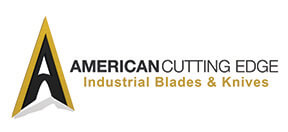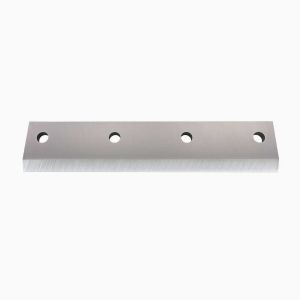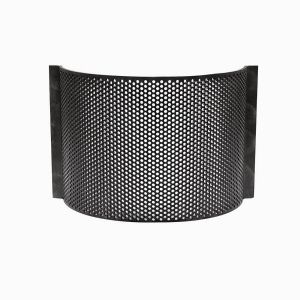How to Increase the Life of Your Granulator Knife

When the life of your granulating blade is optimized, your entire granulating process is improved. Your production lines experience less downtime, your output is consistent and reliable, and your work environment is safer and more efficient.
Utilizing a precision granulator knife sharpener, establishing an appropriate feed rate, and accurately setting the gap between your granulator blades ensures the highest possible efficiency from your operation.
"Pride, precision, and perfect product." - Tom Buchanan
Precision Sharpening Your Granulator Blades
Granulating requires precision blades. To properly maintain your knives and achieve optimum life and performance, blades must be professionally sharpened by a vendor with precision grinding experience. Many vendors claim to offer granulator blade sharpening. However, only those with the proper equipment can perform true precision sharpening.
Vendors without the right equipment are limited to what they have on hand to sharpen blades. Using the incorrect equipment to sharpen granulator blades will do more harm than good in the sharpening process. Each type of blade material requires a specific grade abrasive to optimize material removal without over heating the steel knives. Non-precision sharpeners may only have one grade abrasive to utilize for all blade materials in this environment blades are sharpened without regard to the alloying elements contained in steel. As a result, the knife can become hot during the sharpening process altering edge toughness, increasing the hardness of the material, causing it to become brittle. This can occur at specific points on the blade or all along the length of the knife's edge.
Ideally, the grinding abrasives used for granulating blades made of hardened tool steel should have porous bond material for minimal-loading of the abrasive and cool surface sharpening. With the utilization of porous grinding abrasives which are less rigid, it is the abrasive that breaks down during the sharpening process. To evaluate your sharpened granulator blades, look for signs of discoloration on the knife's surface such as blue, purple or brown hues. This discoloration indicates that the material became too hot during the sharpening process and may now be more brittle as a result.
Precision sharpeners utilize abrasives specifically designed for use in grinding a series of alloy steels to allow for maximum material removal without compromising the steels structure by limiting surface temperatures of the piece being ground. As the blade is sharpened, it is flooded with coolant to decrease heat and eliminate the risk of changing the hardness level of the material. Knife edges within a set are all ground simultaneously to a specific width to ensure optimized gap setting. It is important to note that the higher the hardness of the blade material, the greater the risk is for damage during sharpening due to use of improper abrasives.
"Quality isn't expensive. It's priceless." - Anonymous
Accurately Setting the Gap
Efficient granulating requires knives that are all the same width and are very straight. This allows gap tolerances to be set tight, ultimately improves the output of the granulator, and increases blade life. Ideally, all knives within a granulator set will be within .003 -inch total indicator read-out. This means that throughout the entire set, there is no more than .003-inch difference between the blades. The width of the blades should not vary by more than 0.003-inch throughout the set.
When all granulator blades within a set are matched with exacting tolerances, the gap within the granulator machine can be set very close to maximize the efficiency of the granulating operation and increase the life of the blade.
High-quality industrial knife manufacturers have the experience, resources, and expertise to assess your current granulating operation and make recommendations to improve maintenance procedures, enhance blade configurations, and even perfect your current blade installations. Work with an expert in granulating knives to maximize the life of your granulating blades, increase production, and improve output quality.





